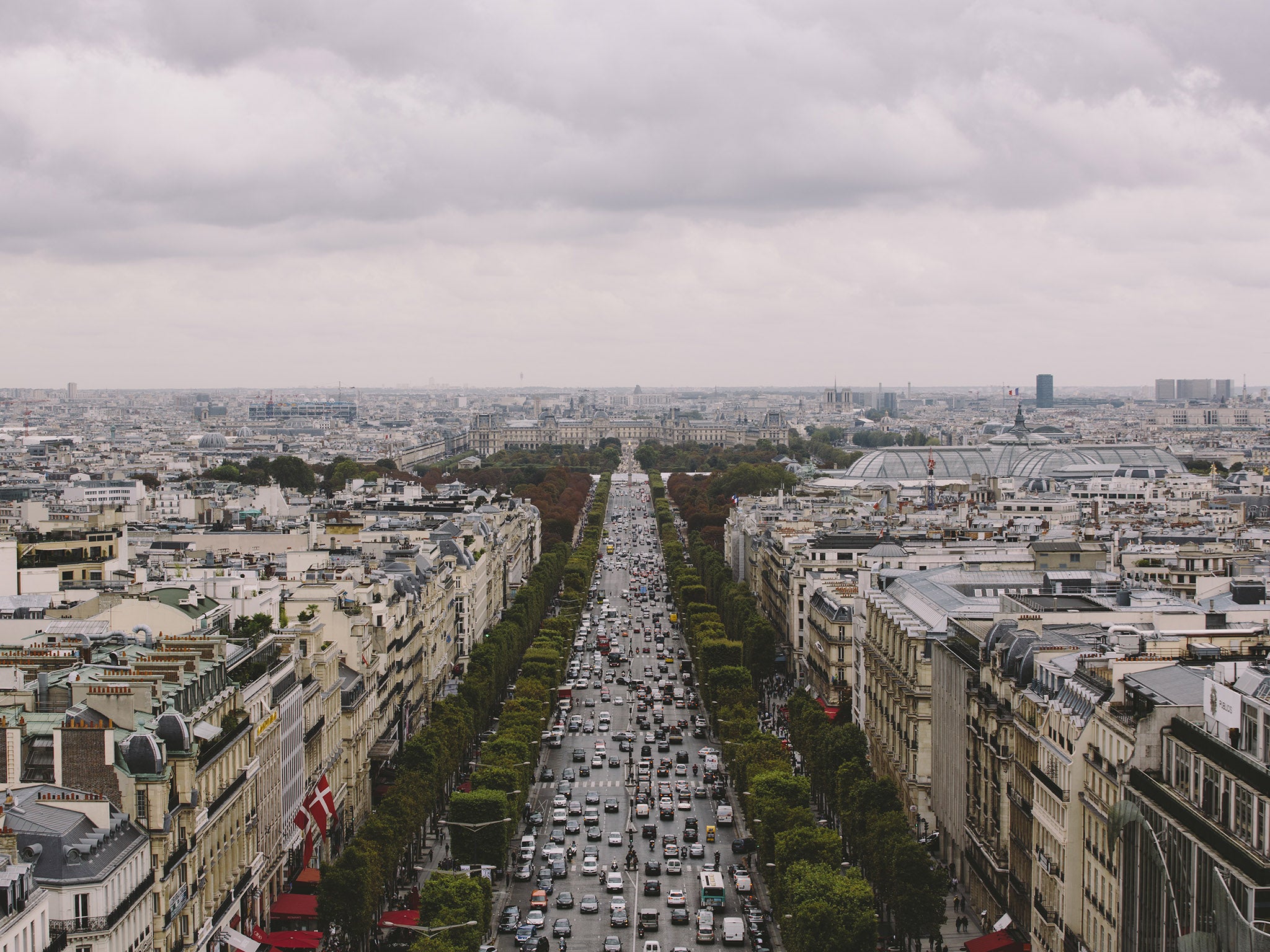Paris introduces once a month ban on cars in bid to tackle air pollution
The 'Paris Breathes' initiative will create traffic free zones across the city

Your support helps us to tell the story
From reproductive rights to climate change to Big Tech, The Independent is on the ground when the story is developing. Whether it's investigating the financials of Elon Musk's pro-Trump PAC or producing our latest documentary, 'The A Word', which shines a light on the American women fighting for reproductive rights, we know how important it is to parse out the facts from the messaging.
At such a critical moment in US history, we need reporters on the ground. Your donation allows us to keep sending journalists to speak to both sides of the story.
The Independent is trusted by Americans across the entire political spectrum. And unlike many other quality news outlets, we choose not to lock Americans out of our reporting and analysis with paywalls. We believe quality journalism should be available to everyone, paid for by those who can afford it.
Your support makes all the difference.The Champs-Elysees – often described as ‘world’s most beautiful avenue’ – will soon be closed to traffic once a month as the city tackles its air pollution problem.
The famous boulevard, along with four other areas, is one of nine new routes which will be car-free on the first Sunday of every month, joining 13 others already announced as part of the cities ‘Paris Breathes’ campaign.
Another four zones will also be pedestrian-only on Sundays, but just during summer months.
The initiative, which will launch on 8 May - the second Sunday of the month due to a public holiday on 1 May – is part of a drive by Paris mayor Anne Hidalgo to reduce air pollution and smog in the city.
The first Sunday of the month also happens to be the day when the city’s national museums have free entry.
Oliver Hayes, a Friends of the Earth air pollution campaigner, told The Independent: “Paris is in the fast lane in the race to tackle dirty air; from car free days, plans to phase out dirty diesel buses, and restrictions on traffic when congestion is high.”
He suggested London could learn a few lessons from the Paris example. “In London, which suffers some of the worst pollution in Europe, a traffic free day would be a welcome start," he said.
“But we’re going to need much more than one day to prevent the thousands of early deaths each year caused by air pollution. London’s mayor has the powers to restrict diesel traffic on the worst pollution days. Boris Johnson’s successor must use them.
“The next mayor must also accelerate the conversion of London’s iconic red buses to electric or hybrid vehicles and introduce a much bigger, tougher Clean Air Zone than what’s currently proposed.
“Bad air effects everyone, causing more early deaths than everything other than smoking. As the VW scandal has shown, car manufacturers are not doing anything like enough to curb deadly diesel emissions. At the very least, the Government must introduce a diesel scrappage scheme to help drivers switch to cleaner vehicles.”
The new measures in Paris are largely the result of a successful car-free Sunday in the city on 27 September last year. Between 9am and 4pm cars were banned in some key areas of the city, including the Champs-Elysees.
According to air quality network Airpartif, which monitors pollution levels in Paris, there was a 40 per cent drop in harmful exhaust emissions in parts of the city.
In March last year the air pollution reached such high levels a one-day ban on all cars with odd-numbered registrations was announced, halving the amount of vehicles in the city from 5am and significantly reducing the harmful emissions.
Mrs Hidalgo, who has prioritised combating pollution in the city, won a long running battle with the French government for the right to introduce similar emergency measures in the event of any future air pollution spikes.
Join our commenting forum
Join thought-provoking conversations, follow other Independent readers and see their replies
Comments